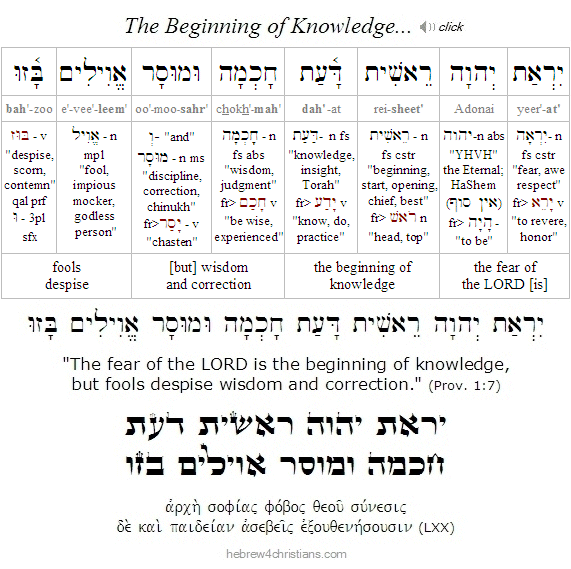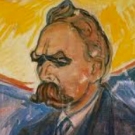|
Dietrich Bonhoeffer (1906-1945), a German pastor who was surrounded by the atrocious evil of Nazi Germany and who was murdered at their hands, regarded stupidity as more dangerous than outright evil, since stupidity is a type of irrationality, a chosen ignorance of what is real and true. Against such willed ignorance we are often defenseless, since any reasoning that appeals to transcendental moral truth finds no traction, carries no weight, and has no effect. The devil, then, seeks first of all to stupefy people, that is, to drug them or flatter and persuade them to think that there is no need to engage in serious thinking or to humbly question their assumptions... As William James observed: "A great many people think they are thinking when they are merely rearranging their prejudices." The antidote to unthinkingly accepting the biases and inculcated prejudices of the world is to humble ourselves by learning to sincerely respect the Reality of God: "The fear of the LORD is the beginning of knowledge; but fools despise wisdom and correction" (Prov. 1:7).
ūÖų┤ū©ų░ūÉųĘū¬ ūÖų░ūöūĢųĖūö ū©ųĄūÉū®ūüų┤ūÖū¬ ūōų╝ųĖūóųĘū¬
ūŚųĖūøų░ū×ųĖūö ūĢų╝ū×ūĢų╝ūĪųĖū© ūÉų▒ūĢų┤ūÖū£ų┤ūÖūØ ūæų╝ųĖū¢ūĢų╝
yeer┬Ęat ┬Ę Adonai ┬Ę rei┬Ęsheet ┬Ę dah'┬Ęat
chokh┬Ęmah ┬Ę oo┬Ęmoo┬Ęsar ┬Ę e┬Ęvee┬Ęleem ┬Ę bah'┬Ęzoo

"The fear of the LORD is the beginning of knowledge;
but fools despise wisdom and correction."
(Prov. 1:7)


For Bonhoeffer, stupidity is a moral fault, not an intellectual deficiency; it is the result of a willful ignorance and cynical laziness. He wrote: "If we want to know how to get the better of stupidity, we must seek to understand its nature... that it is in essence not an intellectual defect but a human one. There are human beings who are of remarkably agile intellect yet stupid, and others who are intellectually quite dull yet anything but stupid. We discover this to our surprise in particular situations. The impression one gains is not so much that stupidity is a congenital defect but that, under certain circumstances, people are made stupid or that they allow this to happen to them. We note further that people who have isolated themselves from others or who live in solitude manifest this defect less frequently than individuals or groups of people inclined or condemned to sociability. And so it would seem that stupidity is perhaps less a psychological than a sociological problem" (Bonhoeffer: Letters from Prison).
Soren Kierkegaard likewise regarded stupidity to be a category of the "group-think" of the crowd. He wrote: "There is a view of life which holds that where the crowd is, the truth is also, that it is a need in truth itself, that it must have the crowd on its side. There is another view of life; which holds that wherever the crowd is, there is untruth, so that, for a moment to carry the matter out to its farthest conclusion, even if every individual possessed the truth in private, yet if they came together into a crowd (so that "the crowd" received any decisive, voting, noisy, audible importance), untruth would at once be let in... Indeed, the crowd is untruth. There is therefore no one who has more contempt for what it is to be a human being than those who make it their profession to lead the crowd. ... For to win a crowd is not so great a trick; one only needs some talent, a certain dose of untruth and a little acquaintance with the human passions" (Upbuilding Discourses).
Those who deny that truth exists (or those who deny that something may be known about reality) are themselves making a truth claim, namely the claim that there is no such thing as objective truth (or that knowledge of the world is not possible). This self-inflicted incoherence is a sign of irrationalism, of course, the abandonment of reason, which perhaps is the ulterior motive for such manner of thinking, after all. The person who denies truth does so to escape the demands of truth ŌĆō to flee from personal responsibility before moral and spiritual Reality. It is a form of "wish-fulfillment" to deny that people are not responsible for what they believe and how they live their lives. Hence our culture's obsessive "busyness," its craving for ongoing diversion, entertainment, fantasy, escapism, and so on. Our generation finds evil in "boredom" and finds nothing of lasting interest because it has forsaken the big questions of life and the pursuit of truth. Popular culture encourages apathy, indifference, and seeks to enslave people to thrills and titillations of the moment... The ancient pagan world at least esteemed honor and believed in the pursuit of virtue and truth, but today's post-Christian world is nihilistic, anarchist, and therefore marks a return to barbarism.
The ground of all right thinking about reality is "wonder," or the sense that life itself is something mysteriously beautiful, amazing, and therefore inherently sacred. This is sometimes called yirat Adonai (ūÖų┤ū©ų░ūÉųĘū¬ ūÖų░ūöūĢųĖūö), "the fear of the LORD" that leads to wisdom. Right thinking therefore begins with consciousness of the good (ūöųĘūøų╝ųĖū©ųĘū¬ ūśūĢų╣ūæųĖūö), that is, with an awareness that life itself a gift, a mystery, and a hallowed question... We seek our origin, our essence, and our purpose -- and in our seeking we seek the LORD. We long for deliverance from what keeps us from healing, from love, from real hope. And as we seek, the wonder of the LORD God never ends. As Yeshua said, "Ask, and it will be given to you; seek, and you will find; knock, and it will be opened to you" (Matt. 7:7).
|



